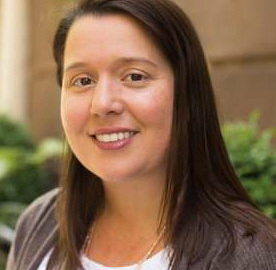| Describing an economic catastrophe rivaling the Great Depression of the 1930s, James A. Parrott, director of economic and fiscal policies for the Center for New York City Affairs at The New School, and Lina Moe, a research assistant at the Center, today released a new report focused on what they call the “new strain of inequality” that the Covid-19 outbreak is creating in the social and economic life of the nation’s largest city. The report, entitled “The New Strain of Inequality: The Economic Impact of Covid-19 in New York City,” estimates that the city will have lost some 1.2 million jobs by the end of April – a downward spiral that began in mid-March, when school and business closings were mandated and drastic social distancing measures ordered to check the spread of the deadly coronavirus. Parrott and Moe describe three new categories of jobs characterizing this moment of unprecedented economic contraction for New York: essential public health, safety and sustenance jobs; face-to-face service and production jobs that have been sharply restricted in the current public health emergency; and mainly professional and managerial jobs that can be performed remotely. (They shorthand these categories as “essential,” “face-to-face,” and “remote.”) The report focuses intensely on the workers in the face-to-face category, including those in the gig economy and other independent contract workers as well as traditional wage employees. It details the industries, race-ethnicity, earnings, and other characteristics of these workers, who include an estimated 192,000 undocumented workers who have been displaced in the economic shutdown. Nearly two-thirds of jobs lost due to the pandemic were held by workers paid less than $40,000 annually. Similarly, two-thirds of job losses are occurring among persons of color, with Latinx workers bearing a particularly high burden, experiencing one-third of lost jobs compared to a 26 percent share of all New York City private jobs before the crisis. One-third of young adults ages 18-24 have lost jobs. “In many ways,” Parrott and Moe conclude, “we are observing the emergence of a new strain of inequality—one that exposes in a more visceral sense than before the stark precariousness of most low-wage work, This involves not only low pay but poor or no health insurance, little or no paid leave, no on-the-job health and safety protections, and only a shrinking and tattered safety net to fall back on. Precarious lives concentrated in crowded and poorly housed neighborhoods have become an electromagnet in attracting the deadly virus.” |
| James Parrott is the director of Economic and Fiscal Policy at the Center for New York City Affairs at The New School. Lina Moe is a graduate student in economics at The New School. She is also a co-author of a recent Center for New York City Affairs report assessing the impact of New York’s $15 minimum wage. |



